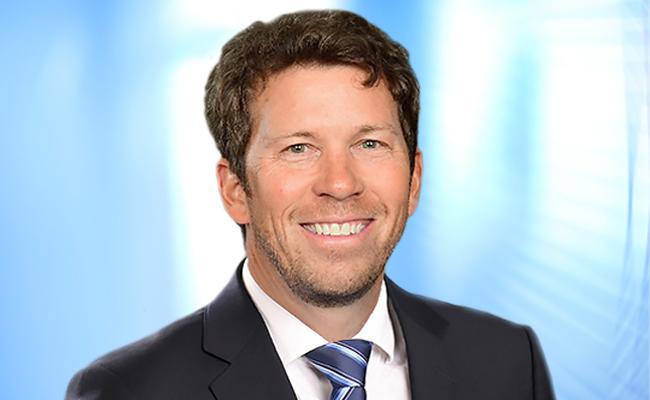Tetra Tech's Jim McQuarrie Discusses Supporting Community Resilience and a Circular Economy Through Water Innovation
Supporting resilient and sustainable communities through water innovation and resource recovery

Jim McQuarrie is Tetra Tech’s One Water innovation lead and a professional engineer with more than 25 years of experience serving the municipal wastewater industry in both public and private sector roles. His career began as an entry level plant operator at a small wastewater treatment plant in central New Jersey and, to this day, he is continually amazed by the water community, its accomplishments, and its resolve for making a better future.
Jim has deep practical expertise in wastewater infrastructure planning, design, and operation and has been active in bringing innovation into practice wherever it helps to save on lifecycle infrastructure costs or improve social sustainability. He is based out of Tetra Tech’s Denver, Colorado, office and supports innovative wastewater solutions for our teams around the world. He has his Bachelor of Science in Environmental Science from Rutgers University and Master of Science in Environmental and Civil Engineering from Colorado State University.
What do you see as the biggest challenges and opportunities for the water sector in the next 30 years?
It’s probably important to first appreciate all that’s been accomplished in the water sector over the last 50 years and the positive impact it has had on urban health and the environment. Over the next 30 years, the sector has a great opportunity to build on that progress. There is little doubt that the biggest challenge will be to modernize and rethink our built environment in ways that allow substantially more resilient infrastructure, with supporting water, energy, food, and transportation infrastructure systems that are truly sustainable. Extensive decarbonization of our energy and material needs is critical, along with greater circularity in terms of how we use, recycle, and reform resources and materials back into our economy.
The water sector’s contribution towards resolving this challenge will be to create 21st century water-sensitive cities where urban design and water infrastructure are much more integrated into the landscape and more multifunctional. Now is the time to think big and begin planning because many of these opportunities cut across traditional modes of governance and technical disciplines, and thus will require time to collaborate, partner, and align on how to go about delivering the change that is needed.
What innovations in wastewater treatment are supporting clients in addressing their most complex challenges?
We are reaching a point where economic growth and environmental sustainability are becoming inextricably linked. We can't have one without having the other, so my hope is we will begin viewing our wastewater systems as also having a meaningful role as a resource recovery system.
We are all accustomed to the phrase reduce-reuse-recycle when it comes to recycling at our homes. Our public investments in wastewater infrastructure are perfect for an identical concept, but instead we are recovering energy, nutrients, rare earth elements, and, of course, water. This concept fits well with the model of a 21st century water-sensitive city. The systems that already collect, convey, and treat sewage from homes and businesses bring added value by being integrated into a portfolio of urban systems that serve the circular economy.
An example is sewer heat recovery where the thermal energy in raw wastewater can be used as part of a district energy system that provides a group of high performance buildings with low-carbon heating and cooling. Tetra Tech is currently supporting clients in major urban centers incorporating sewer heat recovery in mixed use developments to help reduce carbon emissions.
How can utilities support their communities to become more resilient?
City and utility planning, policy, and governance have an important role in leading this transition. They can enable the interdepartmental and interagency collaboration needed to master plan and create policy and governance required for the new types of integrated and interdisciplinary solutions needed for greater resiliency and sustainability. Establishing a clear strategic direction will guide the tactical decision-making that over time delivers more resilient and sustainable infrastructure.
Tetra Tech is uniquely equipped to support utilities’ vision for increased resilience. Our teams of experts in multiple practice areas—high performance buildings, energy, coastal resilience, water, and advanced data analytics—can help create transformational solutions that can help make a real difference for communities.

